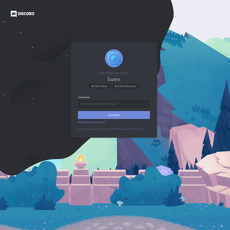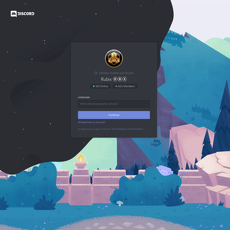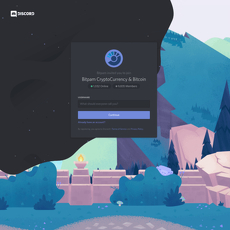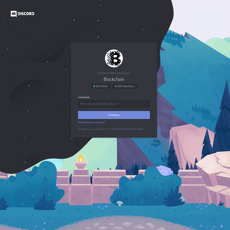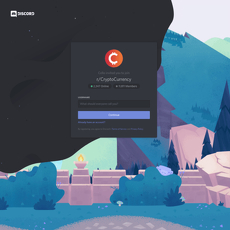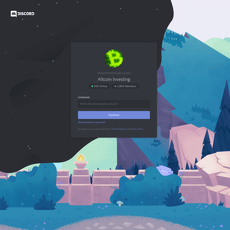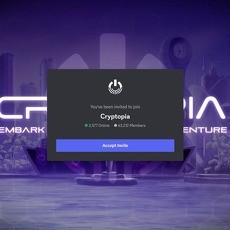Cryptohub Review
Cryptohub
discordapp.com
Cryptohub Discord Review Guide: what it is, how it works, and whether it’s worth your time (with FAQ)
Ever jumped into a crypto Discord expecting “alpha,” only to get 200 pings, zero signal, and a shady DM claiming you’ve “won” an airdrop? If you’re nodding, you’re exactly who I wrote this for.
I spent time inside Cryptohub to answer a simple question: is this server actually useful, and how do you get value without drowning in noise or stepping on a landmine? I’ll keep it real, practical, and focused on what matters day-to-day.
The pain: noisy servers, sketchy “alpha,” and unclear rules
Most crypto Discords promise community and edge. What you often get is chaos. Here’s the recurring mess I see:
- Too many channels, not enough curation. I’ve joined servers with 80+ rooms but no clear “start-here.” You waste 30 minutes just figuring out where people actually talk.
- Hypey “calls” with no risk plan. A classic: “LONG XYZ NOW” with no entry, invalidation, or time horizon. Without those, it’s not a trade idea—it’s a coin flip.
- Scams slip in through DMs and lookalike links. Chainalysis has shown for years that scams are a top source of on-chain losses, and Discord is a known vector. One “free mint” click from a fake mod and your wallet can be toast.
- Rules and age restrictions are unclear. Some servers enforce 18+ gates or certain content rules, others don’t spell it out. Confusion = mistakes.
- Newcomers quit early. The combo of alerts, jargon, and FOMO pings pushes people out before they find the good rooms and tools.
Real example: I once watched a user follow a “quick scalp” with no stop posted. Price wiggled 2% against them, panic hit, and the chat went silent. If a server normalizes calls without invalidation, expect noisy drawdowns—not learning.
The promise: a straight-up review and a simple plan to use Cryptohub the right way
- Clear map of the server. I’ll explain how Cryptohub is laid out, what each area is for, and how to avoid the time-wasters.
- Fast setup, fewer pings. You’ll get a practical checklist for roles, alerts, and notifications so you see the right stuff—without living in Discord.
- Safety basics that actually matter. We’ll talk link hygiene, DM settings, and the basics of Discord’s under-18 rules so you don’t get caught out.
- Honest comparisons. I’ll note where Cryptohub lands versus other popular crypto servers, and who’s most likely to benefit.
Think of this as a usage guide, not just a review. If a tool or channel helps you make faster, safer decisions, it stays. If not, mute it. Simple as that.
Who this guide is for, quick verdict, and what not to expect
- Who it’s for: Traders and investors who want active discussions, curated updates, and helpful tools—without being spoon-fed. If you like to ask questions, post your own charts, and iterate, you’ll fit right in.
- Quick verdict: Cryptohub is a solid pick if you enjoy community plus tools and you’re willing to apply your own risk management. It can be signal-rich once you set it up right.
- What not to expect: Guaranteed profits, perfect signals, or hand-holding on every trade. Treat ideas as inputs. Your entries, invalidations, and sizing are on you.
Now, the big question: what exactly is inside Cryptohub, how is it organized, and who’s steering the ship? Let’s unpack that next so you can get oriented in minutes—not weeks.
What is Cryptohub? Server snapshot, vibe, and who runs the show
Cryptohub is exactly what it sounds like: an always-on crypto Discord hub where traders swap ideas, share charts, and keep one eye on the next catalyst. Expect a mix of market updates, “alpha” chatter, and practical tools that help you move faster without living on Twitter all day.
The first thing you’ll notice is the pace. Conversation runs hot around big events—CPI prints, FOMC, ETF headlines, exchange listings. When markets calm down, the server leans into education, TA threads, and post-mortems. That rhythm matters: it lets you catch up fast via announcements and pinned posts, then slip into the live chat when it’s go-time.
Who runs it? A visible crew of admins and moderators with role tags (you’ll see them in the right sidebar). They set the tone, post house rules, and keep link hygiene tight. Good signs: clear announcements, consistent moderation, and transparent role names like [Admin] or [Mod] so you know who’s legitimate.
“In crypto, your scarcest asset isn’t capital—it’s attention.”
Onboarding is standard Discord fare: agree to rules, complete verification, and choose roles to filter what you see. That last part is key. Pick only what you trade. The less noise, the more signal.
- Invite: discord.gg/cryptohub
- Vibe: active, trader-first, mixed experience levels, useful pins and summaries
- Onboarding: verify, read rules, select roles, star your core channels
- Activity pattern: spikes around macro/crypto news; catch-up via announcements + pins
Real example of how a “good day” flows here: an announcements post flags the morning’s catalysts, a market-updates feed streams the headlines, a TA room shows a few charts with invalidations, and an ideas thread hosts quick arguments for/against the move. You can scan, decide, and act—without doomscrolling.
Channel map: how the server is organized (and how to not get lost)
Nearly every solid crypto Discord follows a familiar layout. Cryptohub is no different, and that’s a good thing for new members.
- Announcements — official updates, event reminders, collabs, and rules changes
- Rules / Start-here — onboarding, verification steps, FAQ, role menus
- General chat — fast banter; good for vibe, not for entries
- Market-updates / News-feed — curated news, listings, macro headlines
- TA-sharing / Ideas / Alpha — charts, theses, entries/invalidation talk
- NFT / Altcoin corners — niche topics, project chatter
- Support — account issues, bot help, reporting problems
- Voice rooms — occasional live Q&A, spaces-style market opens
Pro tip: start with announcements, rules/start-here, and one focused news feed. Then pick 3–5 high-yield rooms you’ll actually use daily. For most traders that’s something like market-updates, TA-sharing, alpha/ideas, plus one social room to stay human.
Quick sample setup that works:
- Star: announcements, market-updates, TA-sharing, alpha/ideas
- Leave unmuted: one chat room where you connect with regulars
- Mute: everything else until it earns your attention
Roles, notifications, and first-hour setup
Your first hour should be 70% filtering, 30% reading. Research on interruptions (UCI’s Gloria Mark and others) shows it takes roughly 20+ minutes to refocus after a context switch—so notification discipline pays real dividends.
- Claim roles that match your style (BTC, ETH, majors, NFTs, scalps/swing). Skip the rest. Roles control pings—your sanity depends on it.
- Open channel notifications and choose “Only @mentions.” Also toggle “Suppress @everyone and @here.”
- Star your 3–5 core channels so they sit at the top of your sidebar.
- Turn off DMs from server members (Server Settings → Privacy) to stop cold-pitch scammers.
- Skim pinned messages in each starred channel. Good servers pin best practices, glossary posts, and current market context.
- Mobile sanity check: allow notifications only for your starred channels; everything else stays quiet until you need it.
Mini workflow I like: roles for BTC/ETH/SOL swing, star announcements, market-updates, TA-sharing, alpha/ideas. I set alerts to @mentions only and schedule two check-ins (pre-open and New York lunch). That keeps me in control instead of chasing pings.
What I look for right away
- Moderator presence: Are spam links and “DM me for support” posts removed fast? Real mods speak in public channels first and carry clear role tags.
- Reasoning over hype: Are trade ideas posted with entry, invalidation, and time horizon? If it reads like “buy now” with no plan, I ignore it.
- Tool reliability: Are bots up, news feeds timely, calendars synced? A broken bot during volatility is worse than no bot.
- Pinned quality: Are there concise primers, glossaries, and recent market recaps pinned? Pins are your shortcut to signal.
- Culture check: Do regulars help newcomers without dunking on them? Healthy rooms compound knowledge; toxic rooms compound mistakes.
Five-minute audit you can run today:
- Open announcements and see if the last 3 posts are timely and relevant.
- Check TA-sharing: can you find one idea with a clear invalidation in under a minute?
- Glance at the member list: do staff have consistent, visible role tags?
- Hit pins in your starred rooms: do they actually save you time?
- Toggle your alerts: could you go an hour without getting pinged for fluff?
If that sounds like the kind of control you want, you’ll feel at home here. And if you’re wondering what specific bots, feeds, and scanners make this setup hum—and which ones are worth your attention when the market is moving—want me to show you the exact toolkit I rely on inside Cryptohub next?
Features and tools: what you actually get inside Cryptohub
Here’s the real value inside the Cryptohub Discord: it’s built around fast signal discovery without losing the plot. You’ll find bots that actually work, curated feeds that flag market-moving events, and channels where people explain ideas instead of screaming “BUY NOW.” I treat it like a workstation—trim the noise, keep the signal.
What I use daily
- Price bots and quick charts: Simple slash commands or bot calls like /price BTC or /chart ETH 1h when you need a snapshot. It’s basic, but the speed matters when the market is moving.
- News streams that don’t spam: Feeds pull headlines from credible sources (think regulatory notices, exchange status, ETF flow updates, big hack alerts). Kaiko’s market notes and CPI/FOMC alerts are highlighted—useful, because multiple studies and provider reports have shown that macro prints like CPI surprise tend to spike BTC volatility around release times.
- Calendar alerts: CPI, FOMC, earnings of crypto-exposed stocks, and big token unlocks or exchange listings. I set these to ping me 30–60 minutes before the event, then again at release.
- On-chain and scanner tools: Wallet trackers (whale in/out), new pool/liquidity alerts on major DEXs, unusual volume flags, and early listing detectors. Example: “New Uniswap v3 pool: TOKEN/ETH | Liquidity +$220k | Renounced? No” is the kind of one-liner I want to see before checking Etherscan and a reputable block explorer.
- Curated market recaps: Short summaries at key times (New York open, Asia open, weekly close) so you can catch up in under 3 minutes.
- Idea-sharing threads: People post charts with reasoning and ask for feedback. When it’s good, the thread reads like a lightweight trade journal.
- Voice/AMA rooms: Occasional sessions for Q&A or market open commentary. I treat them like a radio channel—good for context, not for pressing the buy button.
“Tools don’t make trades—traders do. Your edge is how you filter, not how much you see.”
Signals and strategy chats (manage expectations)
Signals exist, but the power move is to treat them as starting points, not orders. If a post doesn’t include the basics, I skip it. Here’s the simple checklist I use:
- Entry: Price or zone, not “soon.”
- Invalidation: Exact level or condition that kills the idea.
- Time horizon: Scalps are not swing trades; know which one you’re reading.
- Reasoning: A chart snapshot or a one-paragraph thesis beats a screenshot with arrows.
- Risk plan: How much to risk, not how much to dream.
A sample of a “real” post I like to see
- Pair: BTC/USDT
- Setup: 4h structure higher lows, reclaim of 200EMA
- Entry: 64,200–64,450 (ladder spot)
- Invalidation: 63,300 4h close
- Targets: 66,000 / 67,200
- Notes: Funding neutral, OI stable; avoid chasing if 4h closes below VWAP
- Risk: 0.5R per attempt
That’s the type of message you can evaluate quickly. If it wins—great. If it fails—you knew where and why. Kaiko and other market structure researchers have repeatedly shown that volatility clusters around macro prints, exchange outages, and high-impact headlines; that’s why I always cross-check signals against the calendar and news feed before I act.
Education and “learn-by-doing”
There are pinned primers, glossaries, and short guides—helpful for fast context. But the real learning happens when you post your own take and let sharper eyes tear it down respectfully.
How I use the education layer for momentum learning
- Grab a template from pinned resources (structure + invalidation + risk).
- Post a chart with 2–3 sentences explaining your idea—no novels.
- Ask for one thing: “Where’s the weakness in my invalidation?” You’ll get answers you can use.
- Save feedback, tag it with the setup, and revisit after the move plays out. You’ll see patterns in your thinking fast.
Expect quick explainers on topics like funding rate, OI changes, liquidity grabs, fair value gaps, wick absorption, and risk per trade. If you’re newer, this crushes the learning curve compared to lurking in 50 channels.
Events, collabs, and giveaways
Promos and collabs pop up—trading tool trials, NFT allowlists, research partner AMAs, the occasional merch or credits giveaway. The legit ones are announced in official channels and carry mod or staff tags. A well-run event looks like this:
- Clear source: Posted in the server’s announcement channel, tagged by a mod.
- Simple rules: “Attend AMA + ask a question” or “react for a role” beats shady forms.
- No weird asks: No wallet connect, no seed phrases, no “install this extension.” Ever.
Voice AMAs are where I ask nitty-gritty questions: How does the tool source data? What’s the latency? Is there a free tier? If I can’t get straight answers live, I move on.
Reality check: Good events add context and perks; they shouldn’t pressure you into connecting wallets or signing anything blind. That’s where people get wrecked.
One last thing—these features shine when you use them with intent. But how do you keep the good stuff and avoid the traps, impostors, and sketchy links that lurk in every crypto corner?
Next up: I’ll show you the exact safety checks I use inside Cryptohub (and any Discord) so you don’t get burned by fake mods, DM scams, or malicious links. Ever wondered what the “18 rule” actually means on Discord—and how servers enforce it without ruining the experience? Let’s answer that next.
Safety, rules, and staying scam-free (including the 18 rule)
If you only remember one thing about crypto Discords, make it this: your first “alpha” is not getting scammed. The fastest way to protect your bankroll is to build a safety system before you chat, click, or mint.
Here’s the no-fluff version I use inside Cryptohub (and frankly, everywhere):
- Keep DMs closed for all servers. Scammers impersonate staff. Real mods won’t DM you first.
- Trust only links in official announcement channels. Check the domain, not just the logo. When in doubt, type the URL manually.
- Verify roles before you listen to anyone. Click the username, check they have a staff role listed in the server’s “Staff/Team” section. If it’s not there, assume it’s fake.
- Use Discord’s privacy controls to block cold DMs and auto-scan messages for malicious content.
- Wallets are sacred. Never screen-share them. Never sign blind transactions. Use hardware 2FA and hardware wallets for anything that matters.
“Scams work because they feel urgent and friendly at the same time. Slow down. Verify. Then act.”
Real-world example I see weekly: a fresh account with a staff-looking avatar DMs you, “Your account is flagged. Verify here.” The link looks legit at a glance (maybe a Unicode lookalike character in the domain), there’s a timer, and they ask for a wallet signature “to prove ownership.” That signature isn’t a verification—it’s permission to drain. Close the DM, block, report, and move on.
What is the 18 rule on Discord?
Discord’s Community Guidelines set a clear baseline: if you’re under 18, you cannot engage in sexual content or anything that puts your safety at risk. Many servers separately gate adult or higher-risk areas (including some trading rooms) as 18+ to add another layer of protection.
- Global rules still apply everywhere. Age gates don’t override Discord’s policies—violations can get you removed platform-wide.
- Server rules can be stricter. If a channel says 18+, respect it. When you’re unsure, ask a mod in public or read the rules channel.
- Safety first, always. Don’t share personal info, location, age, or financial screenshots in public chats.
TL;DR: follow the platform’s global rules and any extra server rules. If something feels off, it probably is. A two-minute check can save you from a months-long headache.
Reporting and moderation
Good servers live or die by moderation. If you spot a sketchy DM, link, or impersonator inside Cryptohub, here’s how to help keep the place clean:
- Collect proof safely: copy the message link (right-click or tap the three dots → Copy Message Link) and grab a screenshot.
- Report it in-server: use the server’s “Report/Support” or “Create Ticket” channel if available, or tag @Moderator/@Staff in the message thread where the issue occurred.
- Block the user: right-click the profile → Block. Don’t argue with scammers. Just cut them off.
- Escalate to Discord if needed: where available, use the message menu’s Report option; otherwise submit via Discord Trust & Safety (dis.gd/report) and include message links.
What mods typically do with reports:
- Immediate triage: remove malicious links, mute or kick the account, and warn the room.
- Impersonation checks: compare account age, role history, and channel behavior before banning.
- Zero tolerance for low-effort shilling: repeat offenders get timed out or banned.
Why this matters: investment scams are consistently the highest-loss category reported to U.S. authorities (see the FBI’s IC3 2023 report), and social platforms are a prime entry point (FTC data spotlights note billions in losses tied to social media scams). Crypto adds speed and finality—once it’s gone, it’s gone. Staying disciplined is not paranoia; it’s policy.
Helpful references:
- Discord Safety Center
- Report to Discord Trust & Safety
- FBI IC3 2023 Internet Crime Report
- Chainalysis Crypto Crime Report
Personal security checklist
I run this checklist the moment I join any crypto server, including Cryptohub:
- Lock down DMs:
- User Settings → Privacy & Safety → Server Privacy Defaults → Disable “Allow direct messages from server members.”
- Also disable DMs per-server: Server name → Privacy Settings → toggle off “Allow DMs.”
- Harden your account:
- Enable app-based 2FA or, better, a hardware security key (WebAuthn/U2F) for your email, Discord, and exchanges.
- Use a password manager and unique, long passwords. No repeats. Ever.
- Wallet hygiene:
- Use a hardware wallet for funds you care about; keep a separate “burner” wallet for experiments/mints.
- Review and revoke risky approvals regularly (e.g., revoke.cash).
- Read what you sign: “Permit/SetApprovalForAll” = power to move assets. If you don’t expect it, cancel.
- Never screen-share your wallet or seed phrase. No staff will ever need it.
- Click sanity:
- Type official domains manually or use bookmarks from the server’s Announcements channel.
- Watch for lookalike domains (e.g., rn vs m, l vs I). If the URL feels “off,” it probably is.
- Turn on anti-phishing in your browser security tools; consider transaction simulators that preview what a signature will do.
- Reduce noise that creates FOMO mistakes:
- Set notifications to “Only @mentions” and star just a few critical channels.
- Mute the rest. The less you chase pings, the fewer impulsive clicks you make.
- Verification beats vibes:
- Confirm “partnerships,” “airdrops,” and “urgent support” only via the server’s official announcements and site.
- If someone claims to be staff in DMs, ask them to reply publicly in a staff-listed channel. Scammers won’t.
Emotional check: scammers lean on speed, status, and scarcity—“limited spots,” “you’ll miss the snapshot,” “I can fix your flagged account.” If a message makes your heart race, hit pause. That pause is profit.
Want to know how well Cryptohub’s moderation and tools stack up against other big-name crypto servers—and who will actually enjoy the pace here? That’s exactly what I’m unpacking next. Curious where it wins and where it gets noisy?
How good is Cryptohub? Pros, cons, and who it’s best for
If you’re tired of servers that spam “alpha” and vanish when the market turns, here’s the straight talk. I’ve stress-tested Cryptohub during event-heavy weeks and quiet weekends, keeping an eye on signal density, mod response, and how quickly I can turn chatter into a usable plan.
“Noise is free; edge is earned.” In fast markets, your attention is your most valuable position.
On balance, Cryptohub feels like a practical place to work, not just lurk. It won’t trade for you (nothing should), but if you set it up right, it can cut research time and sharpen your decisions.
Pros
- Active, useful chatter without constant horn-tooting. I consistently see trade ideas with context, not just “BUY NOW.” Example from a recent BTC setup I noted: “Entry 62.4k after reclaim, invalidation 61.8k, target 63.6–64k; thesis: NY session liquidity sweep + open interest flush.” That kind of framing lets you decide fast.
- Tools that actually reduce tabs. Price bots, listings calendars, and macro alert posts are updated and easy to scan. During CPI/FOMC weeks, quick bullet recaps saved me from doomscrolling Twitter.
- Pinned content that ages well. The better channels pin examples of risk plans, glossary bits, and “what a good idea looks like.” Beginners can copy the structure; vets can speed-check alignment.
- Moderation that trims obvious spam. I’ve watched fake airdrop links disappear within minutes during busy hours. Not perfect (no server is), but it’s not a free-for-all.
- Community feedback loops. Post a chart with levels and you’ll usually get pointed critique. Learning by shipping your own idea > lurking forever.
Cons
- Fast pace = potential overwhelm. If you don’t filter roles and mute aggressively, you’ll drown. The fix is simple, but some users never set it up and blame the server.
- Signals are mixed, as they are anywhere public. Some are tight and reasoned, others are heat-of-the-moment. Treat everything as a draft until it shows entry, invalidation, and a clear time frame.
- Peak-session noise. When BTC spikes, chat speed can quadruple, and the gems get buried. Pinned highlights help, but you still need a system for catching what matters.
Who it’s best for
- Intermediate traders: You’ll get the most out of the tools + community idea flow. If you can read a chart and run your own risk, the server speeds up your work.
- Serious beginners (with a plan): If you follow a simple setup and ask for invalidation feedback, you’ll skip months of trial-and-error. Don’t chase; learn structure.
- Not ideal for: users who want spoon-fed, guaranteed wins. There’s no such thing, and chasing pings is how accounts get torched. As Barber & Odean famously showed, overtrading and attention-chasing hurt returns (Journal of Finance study).
How it stacks up against other crypto Discords
Different servers, different edges. Cryptohub lives in the “active multi-topic hub + tools” lane, not a pure signal shop or single-indicator cult. Here’s how I place it relative to popular names people ask about (full list on NinjaPromo’s roundup):
- r/CryptoCurrency / r/NFT Community: Massive broad chatter. Great for sentiment and news, but higher noise. Cryptohub is smaller, more trading-focused, and easier to configure.
- LuxAlgo: Indicator-centric with a strong education angle for their tools. If you live on signal overlays, LuxAlgo’s ecosystem fits; if you want mixed alpha + macro + community tools, Cryptohub feels more rounded.
- WallStreetBets spin-offs: High-energy, meme-first. Fun, but volatile and often low on risk structure. Cryptohub aims for idea quality over memes-per-minute.
- Cracking Crypto / Axion: Heavier TA education and structured lessons. If you want coursework vibes, they’re solid. If you want daily market scaffolding + community feedback, Cryptohub is a good middle ground.
- Larva Labs / NFT-centric hubs: Best for collection-specific alpha and mint chatter. Cryptohub covers NFTs but isn’t NFT-only.
Short version: if you want a single-prop bet (one indicator, one niche), pick a specialty server. If you want a balanced feed of tools, levels, and community trade construction, Cryptohub holds its own.
Red flags to watch for anywhere (not just here)
- Guaranteed ROI or “100% win rate” claims. That’s marketing, not trading.
- Unsolicited DMs. Real staff won’t DM first. Scammers often sound urgent: “Limited-time recovery—connect wallet now.”
- Requests for seed phrases or remote access. Non-negotiable no.
- Urgent mint or airdrop links in general chat. Legit updates stick to official announcement channels.
- Fake support handles. Always click the profile, check roles, and verify in-channel. The SEC’s investor education portal keeps a good primer on social-media investment scams (Investor.gov).
I’ve seen Cryptohub’s mods remove impersonators quickly, but your personal opsec is still the final defense.
My bottom-line rating rubric
I score servers on practical trading value, not hype. Here’s the rubric I use and how Cryptohub fares right now (subject to change as servers evolve):
- Moderation quality: 8/10 — Scam cleanup is reasonably fast, rules are enforced without killing conversation.
- Tool reliability: 8.5/10 — Price/news/listings feeds are steady; outages are rare and flagged quickly.
- Clarity of rules and structure: 8/10 — Start-here + pins make expectations clear; channel names are intuitive.
- Education depth: 7.5/10 — Solid primers and critique culture; not a full academy, but plenty to level up if you participate.
- Noise control: 7/10 — Pace can spike; with role filters + mutes it’s workable. Without them, it’s a firehose.
Overall, I rate Cryptohub a strong “use with filters” pick for traders who want a community-powered workflow. Want to know the exact setup I use to keep only the good pings and ditch the rest? In the next section, I’ll walk you through a simple 7-step system that cuts noise without missing moves—ready to steal it?
Getting real value: a 7-step setup to win the signal-to-noise battle
If you set up Cryptohub right, you’ll hear the market when it whispers and ignore it when it screams. Here’s the exact system I use to keep the good stuff flowing and the clutter blocked.
Read rules, pin the “start-here” and announcements channels.
Spend 3 minutes skimming rules and pinned posts. Then right-click those channels and choose Add to Favorites. You’ve now created a single “mission control” to catch up fast after busy days.Claim roles for the topics you actually trade.
If you mostly trade BTC/ETH swings and top-cap alts, don’t enable NFT mints or degen microcaps. Head to the roles channel and select only what maps to your playbook. Less input = sharper output.Mute almost everything; track 3 core feeds + 2 discussion rooms.
Practical mix that works for me:
- Feeds: announcements, market-news, calendar-alerts (CPI/FOMC/listings)
- Discussions: one strategy/TA room and one general trade-ideas room you actually enjoy reading
Right-click the server > Notification Settings > Mute Server > Enable Only @mentions. Then override the 3–5 chosen channels to All Messages. This flips Discord from chaos to curation.Set custom notifications for market-moving alerts only.
Create a “high heat” bundle:
- Turn on All Messages for CPI/FOMC/listing alerts and official announcements.
- Suppress @everyone/@here server-wide; trust mod-tagged posts in announcements.
- On mobile, enable push for those same channels only. If you feel your phone buzzing every 10 minutes, you’ll start reacting, not thinking. Research from the University of California, Irvine found that after interruptions, workers take over 20 minutes to refocus and show higher stress markers (source: UCI interruption study). Keep the pings scarce and meaningful.Post one chart or question per day; ask for invalidation feedback.
Use a simple template so others can help fast:
- Pair: BTCUSDT | Timeframe: 4H
- Thesis: “Reclaim above 200 EMA + bullish divergence”
- Entry zone: 64.2–64.8k | Invalidation: 63.4k close below 4H
- Risk plan: 0.5R probe, add on confirmation
You’ll get more quality responses when you show your work. You’ll also avoid “buy now” noise because you’re training yourself to think in entries/invalidation/risk. That’s a habit, not a hack.Log ideas and outcomes; refine what you follow.
Quick journal (Notion, Google Sheets, or a notes app) with columns: Date, Setup, Why, Entry, Invalidation, Result, Notes. Each week, keep the channels and people whose ideas helped you hit plan, mute the rest. Reflection boosts learning and cuts overtrading; see APA’s summary on task switching and performance hits (source: APA: Multitasking).Review weekly: keep what helps, mute the rest.
Every Sunday:
- Trim roles and channels that didn’t contribute to wins or learning.
- Re-star any channels that consistently save you time (e.g., curated macro recaps).
- Add one fresh resource only if it fits your strategy. Remember, FOMO is just loss aversion in disguise (Prospect Theory, Kahneman & Tversky). You’re not missing out—you’re choosing focus.
Rule of thumb: If a channel didn’t help your decisions last week, it doesn’t deserve your attention next week.
Tool combos that work
I like to run a “confirm-before-click” stack so I’m not acting on a single hot take.
- Discord alerts + TradingView + exchange alerts: Example: BTC crosses 200 EMA on the 4H (TradingView alert), listings bot flags a new pair on your exchange (Discord), and your exchange alert pings at your desired entry zone. Three green lights > one loud siren.
- On-chain/news bot as a filter: If the chat hypes a breakout, check a news feed channel and an on-chain bot first. Big inflows to exchanges or whale transfers near your level? Consider smaller size or wait for confirmation. If on-chain is quiet and liquidity’s thin, no trade is a position.
- Calendar + risk: On CPI/FOMC days (8:30am ET for CPI, 2:00pm ET for FOMC statement), I’ll halve size or wait 15 minutes post-release. Volatility is bait; your risk plan is the hook.
Time-boxing and mental filters
Crypto is 24/7, but your attention isn’t.
- Set check-in windows: Pre-London (06:30–07:00 UTC), pre-New York (13:00–13:30 UTC), and a final scan before Asia open. Outside those blocks, mute. This reduces the urge to chase every ping and aligns with research showing context-switching crushes accuracy and increases stress.
- Use “if-then” scripts: “If BTC is below the 4H 200 EMA and funding spikes positive, then I wait for a sweep and reclaim.” Scripts keep you out of emotional trades.
- Language filter: Ignore posts with “sure thing,” “can’t lose,” or “last chance.” Prioritize posts with entry, invalidation, risk. If those are missing, it’s a story, not a setup.
Helpful resources to keep handy
- Discord Community Guidelines
- Wallet security checklist (Ethereum Foundation)
One last thing before we go on: want me to show how I judge whether signals in Cryptohub are worth acting on, and how I handle the most asked question—“Is it free and reliable enough?” Keep reading and I’ll answer that next.
FAQ and final take: should you join Cryptohub?
FAQ: fast answers people search for
- Is Cryptohub free?
Plenty of channels are free. Like many communities, there may be optional premium tiers for extras. Check the announcements or any premium/subscribe channel inside the server for current details and perks before you spend a cent.
- Are signals reliable?
Treat every signal as an idea, not an order. I only consider posts that show entry, invalidation, time horizon, and a risk plan. If any of those are missing, I pass. Chasing alerts can turn into overtrading, and that’s where results deteriorate—see Barber & Odean’s well-known finding that frequent trading tends to reduce net returns (Journal of Finance).
- What is the 18 rule on Discord?
Discord’s Community Guidelines prohibit anyone under 18 from sexual content or anything that puts their safety at risk. Many servers also gate adult or high-risk sections to 18+ only. When in doubt, read the server rules and ask a mod. Official rules live here: discord.com/guidelines.
- Who has the best crypto Discord?
There’s no single “best”—it depends on your goals. People commonly compare r/CryptoCurrency, LuxAlgo, WallStreetBets, Axion, Larva Labs, r/NFT Community, and Cracking Crypto (here’s a good roundup by NinjaPromo: link). If you want an active hub with tools and curated chatter, Cryptohub fits that lane.
- How do I avoid scams here?
Keep DMs closed. Verify links only in official announcement channels. Never share keys or seed phrases. Confirm staff roles before interacting. Social platforms are a hotbed for investment scams—FTC reporting shows social media is a major contact point for fraud, often involving crypto. Useful reads: FTC: crypto scam trends and Chainalysis’ Crypto Crime Report.
Extra tip: leaving, lurking, and rejoining
It’s perfectly fine to lurk at first. I typically observe a week, save the useful pins, and only then post a chart or question. If the feed gets too noisy, mute most channels or step away and rejoin later. Your setup and timing matter more than the server’s hype. No FOMO—channels will still be there when you’re ready.
Example: during a big ETF headline week, I only followed announcements, a single market-news channel, and one strategy room. I paired those with my exchange alerts. That was enough to catch moves without panic-buying every green candle.
My final word
Mantra: ideas, not orders. Pings, not pressure.
If you want a lively crypto community with working tools—and you’re willing to set filters—Cryptohub is worth your time. The energy is there, the bots are useful, and the chats can sharpen your thinking if you ask for feedback and insist on clear invalidations.
Who benefits most? Traders who like community-driven research, quick market context, and tools that save time. If you’re newer, keep your risk small, ask for critique on your plan, and ignore anything that screams “sure thing.” That one habit alone will save you from most bad trades.
Ready to try it? Join here: https://discord.gg/cryptohub. Tell me how it goes—drop your honest take on my news page and I’ll update this review as things evolve: Cryptolinks.com.
Final reminder: protect yourself. Closed DMs, verified links, and a hard rule to never sign unknown transactions. If a setup doesn’t list entry and invalidation in plain text, it’s not a setup—it’s noise.
CryptoLinks.com does not endorse, promote, or associate with Discord servers that offer or imply unrealistic returns through potentially unethical practices. Our mission remains to guide the community toward safe, informed, and ethical participation in the cryptocurrency space. We urge our readers and the wider crypto community to remain vigilant, to conduct thorough research, and to always consider the broader implications of their investment choices.


